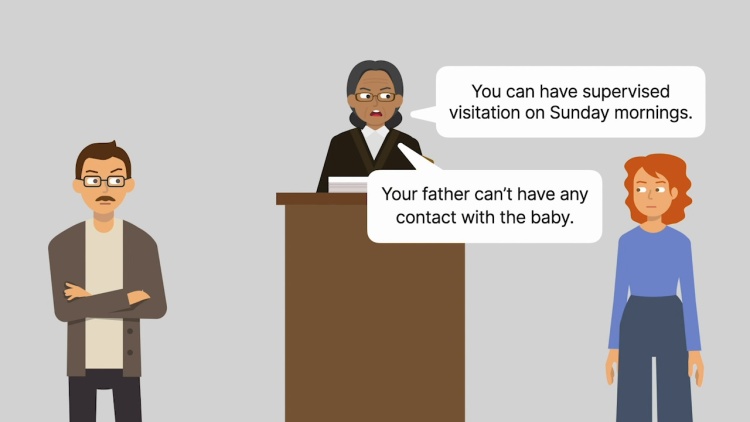Fulk v. Fulk
Mississippi Court of Appeals
827 So. 2d 736 (2002)

- Written by Denise McGimsey, JD
Facts
Jeffery Fulk (plaintiff) and Rhonda Fulk (defendant) separated in September 2000 after one year of marriage. In January 2001, Mrs. Fulk gave birth to a son. Mr. Fulk filed for divorce on the grounds of cruel and inhuman treatment, adultery, and irreconcilable differences. In February 2001, he applied for and was awarded temporary custody of the child. Mr. and Mrs. Fulk each had a problematic history. Mr. Fulk had padlocked Mrs. Fulk in their home at one point and pleaded guilty to domestic violence against her at another time. He also had a history of drug and alcohol abuse. Mrs. Fulk was unemployed and lived with her parents, also unemployed. Precipitating the couple’s demise was a sexual relationship between Mrs. Fulk and another woman. Mr. Fulk had apparently instigated and sought to participate in the relationship. After a permanent custody hearing, the trial court awarded custody to Mr. Fulk. Mrs. Fulk was granted just one hour of supervised visitation per week, to take place on Sunday mornings at a McDonald’s. The court did not address all of the 10 factors to be considered in Mississippi child-custody cases, nor did it explain the bases for some of its determinations. In reaching its decision, the court concluded that Mrs. Fulk’s relationship with another woman was evidence of Mrs. Fulk’s moral unfitness. The court did not consider Mr. Fulk’s history of violence or drug and alcohol abuse. Mrs. Fulk appealed the custody decision.
Rule of Law
Issue
Holding and Reasoning (Bridges, J.)
What to do next…
Here's why 907,000 law students have relied on our case briefs:
- Written by law professors and practitioners, not other law students. 47,100 briefs, keyed to 996 casebooks. Top-notch customer support.
- The right amount of information, includes the facts, issues, rule of law, holding and reasoning, and any concurrences and dissents.
- Access in your classes, works on your mobile and tablet. Massive library of related video lessons and high quality multiple-choice questions.
- Easy to use, uniform format for every case brief. Written in plain English, not in legalese. Our briefs summarize and simplify; they don’t just repeat the court’s language.





